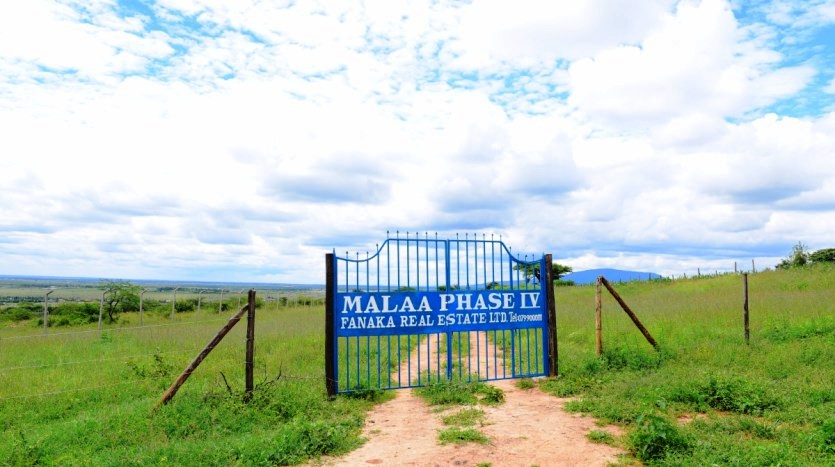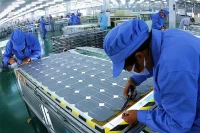In 2015, when he started a land-buying and selling agency, it was a dream come true for Moses Muriithi Kihunii.
As an engineering student at Kenyatta University, he had always harboured the ambition of being an entrepreneur and so he set out by cutting his expenses while studying and saved a bit of his loan from the Higher Education Loans Board (HELB) to establish Fanaka Real Estate.
With Ksh40,000 HELB money, Muriithi acquired an online writing account. “I would invest earnings from this account in real estate between 2012 and 2015,” he says. “By the third year, I had several plots in prime areas.”
With this little experience in real estate, he found a growing demand for affordable land. In trying to bridge the gap for those who live in Nairobi and looking for a place to settle, Muriithi quickly discovered that he was actually making the dreams of prospective homeowners come true.
“The dream of most people is to own a home,” he says. “But most selling companies didn’t have parcels of land in areas you can develop. People want plots they take out and start developing immediately.”
A year later, the agency morphed into Fanaka Real Estate, a full-scale land buying and selling company that’s now a major player along Kangundo Road. From the company’s offices in the sprawling Ruai township, Muriithi is managing a huge portfolio of land.
So far Fanaka Real Estate has completed 12 projects over the past three years, a major fete in an industry teeming with even bigger rivals. These are large projects that are mainly driven by the affordability of land and availability of titles.

Past projects include Sunset View Gardens in Joska, Kamulu Phase 1 & 2 and Malaa Phase 3. Current projects are Kamulu Gardens, Palm Gardens Phase 2, Plains View Gardens Malaa and KBC Malaa Phase 4, among others.
Fanaka’s Ruai base is closer to most properties they sell in areas such as Kamulu, Joska and Malaa areas. “This means easy viewing and organizing site visits for clients,” says Muriithi. “Our location has also increased efficiency since we take clients every day. If we were located in Nairobi we would have to set certain days. We do it at the convenience of the client.”
[ Read Also: The three golden rules for first-time land buyers ]
The company buys land in large tracts and subdivides into eighth and quarter-acre portions, making it more affordable for its target market in the middle-class segment who can afford Ksh400 to Ksh1 million. “We offer a flexible way of payment as you can book a plot with as little as 30% and pay instalments of six to 12 months,” Muriithi said.
Land appreciation is high in the region. An eighth that was selling for Ksh100,000 five years ago now goes for Ksh800,000.
In the land business, the trick is in value-addition, where Fanaka facilitates fencing, roads and connects water and electricity so buyers can construct their houses immediately.
“These areas are easily accessible to Nairobi and the airport and with ready documents, buyers get their titles once payment is cleared. We understand this area and we know where to get the most affordable land.”
Muriithi says the area has high potential in terms of growth. Compared to other places with similar distance from Nairobi’s CBD Kangundo road is cheaper and cosmopolitan.
[ See Also: Six radio stations face closure after staff go without pay for 5 months ]
Land has become a priced commodity in Nairobi, where the quest to own a home has become an everyday dream. But already about 90% of land in Nairobi and its environs is developed and now everyone if fighting to have a piece of the remaining 10%. This has driven up land prices and forced buyers to push further away from Nairobi.
He said the rate of land appreciation is high, noting that an eighth was selling for Ksh100,000 five years ago now goes for Ksh800,000. “We have seen plot prices increase from Ksh200,000 to Ksh1 million within just a period of three years in these regions,” he says.
[ Don’t Miss: Entrepreneurship lessons you can learn from Bidco’s Vimal Shah ]
As the business has grown over the years, and so has the number of employees from 2 to 15, backed by an arm of freelance marketers. With success in selling land, Muriithi is now dreaming big. In five years he’s looking at developing and selling the property.
“This will be in line with Big Four Agenda on affordable housing,” he says.













Where is Fanaka or Moses Mureithi’s Ofiice here in Nairobi?